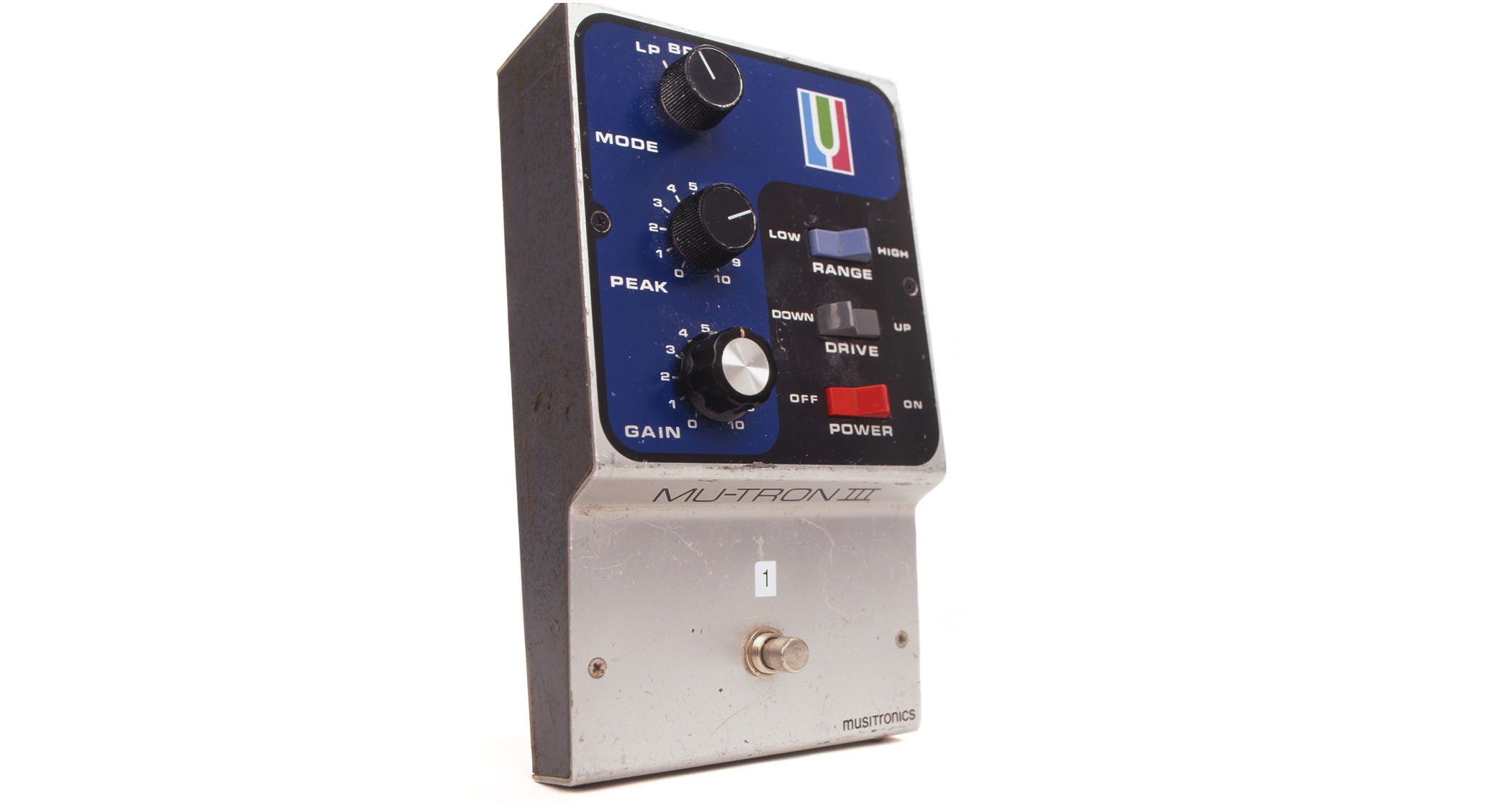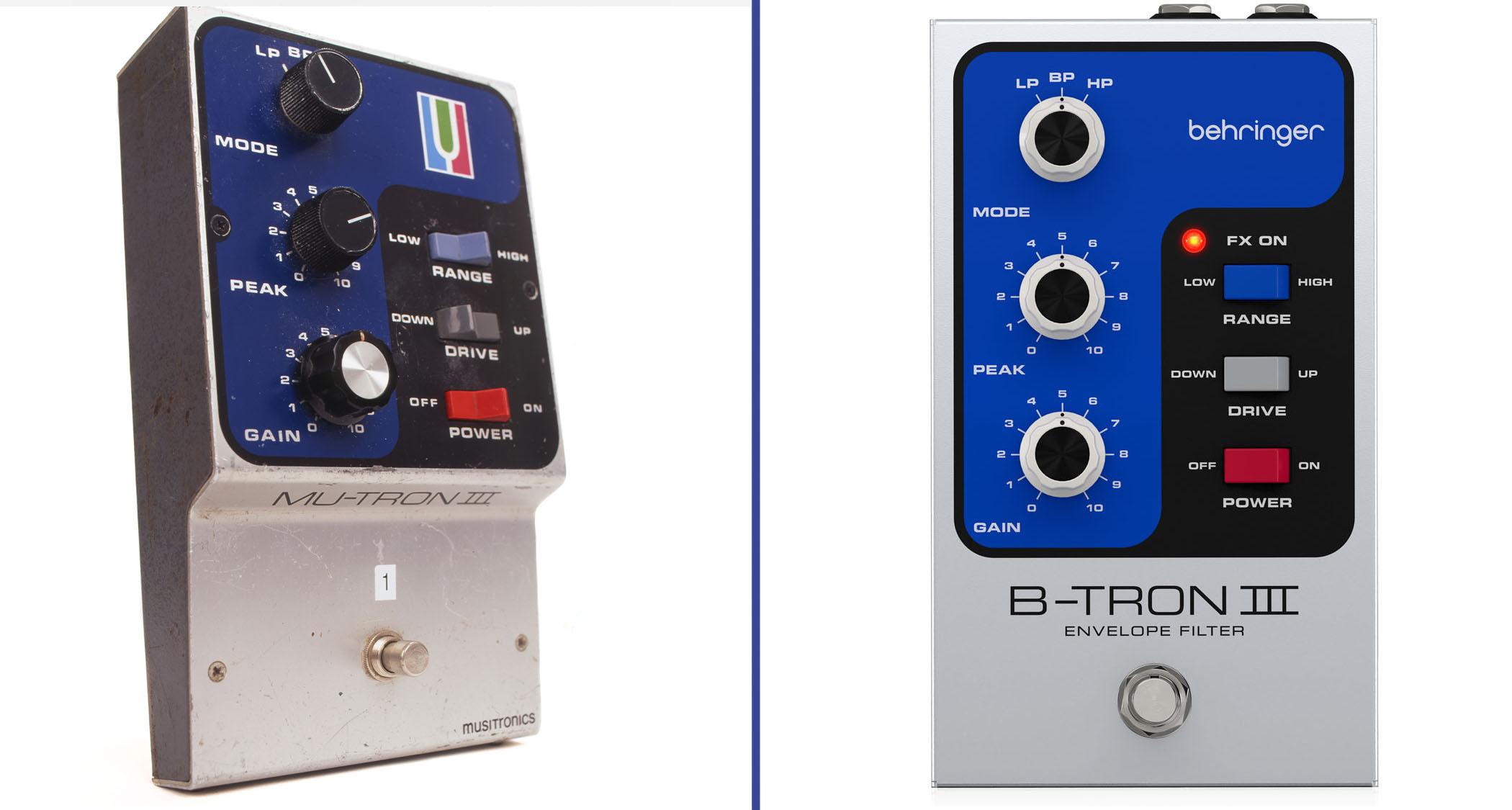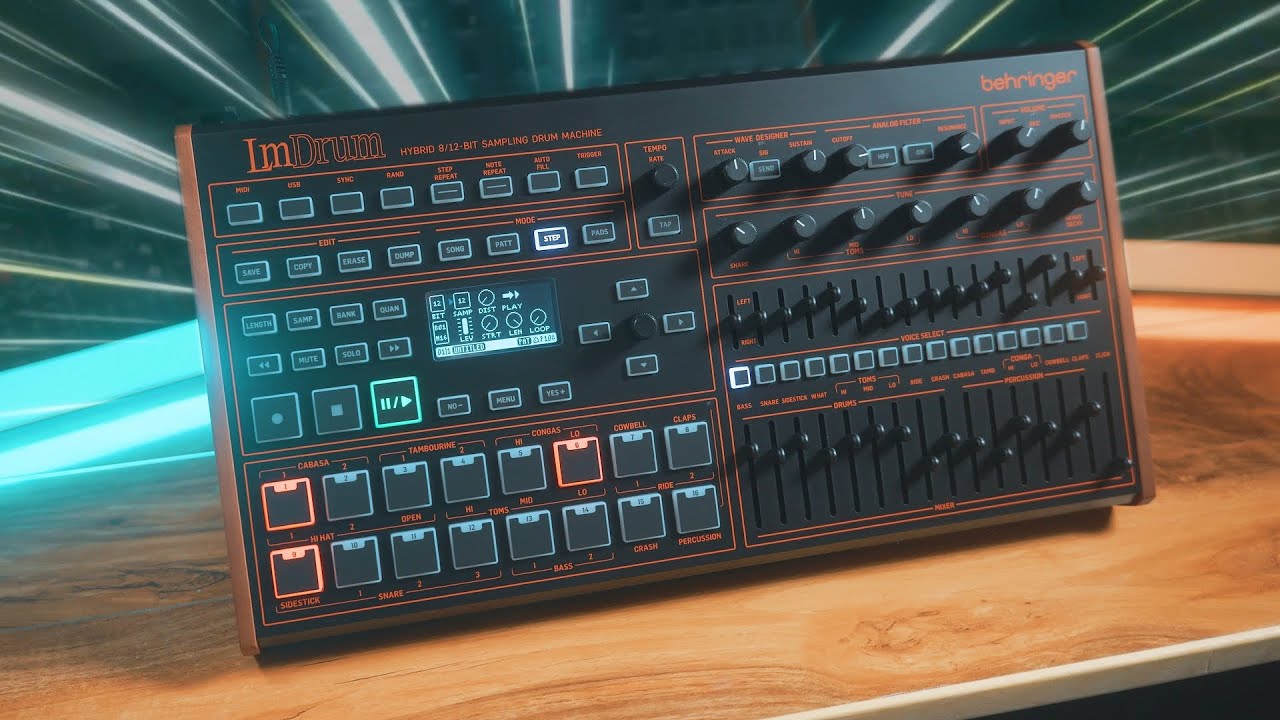“This company has not only copied the trade-dress, they have even assimilated the history of Musitronics into their videos”: Musitronics slams “$2 billion German company” for copying Mu-Tron effects
Musitronics does not mention Behringer by name but does not miss in a social media post calling out the company for issuing three clones of classic Mu-Tron products

Musitronics, the maker of the Mu-Tron III and other funkifiable effects that became a mainstay of ‘70s electric guitar tone, has slammed the German gear giant Behringer, accusing it of copying its products, trade dress and using Mu-Tron history in its promotional videos.
In a Facebook post, Musitronics (aka Mu-Tron), does not mention Behringer by name, but it is quite obvious whom it is speaking of. The post comes just days after Behringer debuted its B-Tron III Envelope Filter, a clone of the Mu-Tron III that retails for $69. Mike Beigel designed the original and formed Musitronics with Aaron Newman in 1972.
“So a $2 billion German company has decided to copy a third Mu-Tron product,” writes Musitronics. “It is being distributed, sight unseen, six month pre-order through a $31 billion investment firm which owns the largest online music store in the world. The pedal is most-likely entirely made in China and will sell for less than the cost of what it takes us to produce here in the USA.”
The B-Tron III Envelope Filter follows the 2022 release of Behringer’s Dual-Phase, a unit based on the Mu-Tron Bi-Phase that was originally teased as the “Bi-Phase” before the name change. In 2021, Behringer released the Octave Divider, a clone – and namesake – of the Mutron Octave Divider.

Behringer is not the first company to make a pedal based on another. It is not the only company to have made a pedal based on a Mu-Tron design. Warm Audio’s Mutation Phasor II, launched in 2023, promises a “true-to-spec recreation” of the Mu-Tron Phasor II, and promises it for $149.
And Mu-Tron is not the only company to complain about Behringer copying a vintage design. In January, Roger Linn slammed the company for the LM Drum, a clone of the iconic LinnDrum drum machine used throughout the ‘80s.

Linn said Behringer’s CEO, Uli Behringer, never asked for his blessing before the release.
Get the MusicRadar Newsletter
Want all the hottest music and gear news, reviews, deals, features and more, direct to your inbox? Sign up here.
“Even if we discount the copying of the visual design, logo style and sound circuit of LinnDrum,” said Linn, “the LM Drum copies my sounds. So I’d have preferred for Uli to ask my permission. Even if he thinks it is legal, I question whether it is ethical.”

Linn was gifted one of the units after the fact. He said Behringer copied the sound design circuit – right down to his “bad ideas” – but used its own operating system and interface and that made it hard to use.
“It uses an entirely different operating system and user interface, one that is based on earlier Behringer drum machines,” said Linn. “Personally, I found it somewhat confusing and difficult to use, though I was given an unfinished manual.”
Mu-Tron also accuses Behringer of copying its trade dress and appropriating the history of the company for its promotional materials.
“This company has not only copied the trade-dress (colour schemes, fonts, labels and verbiage), they have even assimilated the history of Musitronics into their videos as if was their own,” continues Musitronics. “Any suggestions?”
The post has divided opinion among its followers. Mu-Tron has got considerable engineering and pop-cultural equity in the bank. Its designs have been used by the likes of Frank Zappa and Jerry Garcia. Steve Wonder used the Mu-Tron III on Higher Ground. It was a mainstay of Bootsy Collins’ bass guitar sound.
Posted by MusitronicsMutron on
Original vintage units are among the most expensive pedals you can find on the vintage market. Expect to pay north of $800.
The Musitronics online store does not have the original design in stock but it does carry the Micro-Tron IV in Vintage Silver ($279), which is an updated version featuring a Mu-Tron’s MU Opto-Mod tech, an Up and Down footswitch, output level plus a standard CV input to accommodate an expression pedal.
And there is the more compact still Mini Mu, a single-footswitch version for $199 that “provides all the classic Jerry tone and Bootsy funk, in a pedalboard-friendly size”. You can browse the range at Mu-Tron.
Jonathan Horsley has been writing about guitars and guitar culture since 2005, playing them since 1990, and regularly contributes to MusicRadar, Total Guitar and Guitar World. He uses Jazz III nylon picks, 10s during the week, 9s at the weekend, and shamefully still struggles with rhythm figure one of Van Halen’s Panama.
You must confirm your public display name before commenting
Please logout and then login again, you will then be prompted to enter your display name.
“Instead of labouring over a perfect recreation, we decided to make an expanded counterpart”: Chase Bliss teams up with Mike Piera for Analog Man collab based on the legendary King Of Tone
“It’s about delivering the most in-demand mods straight from the factory”: Fender hot-rods itself as the Player II Modified Series rolls out the upgrades – and it got IDLES to demo them











